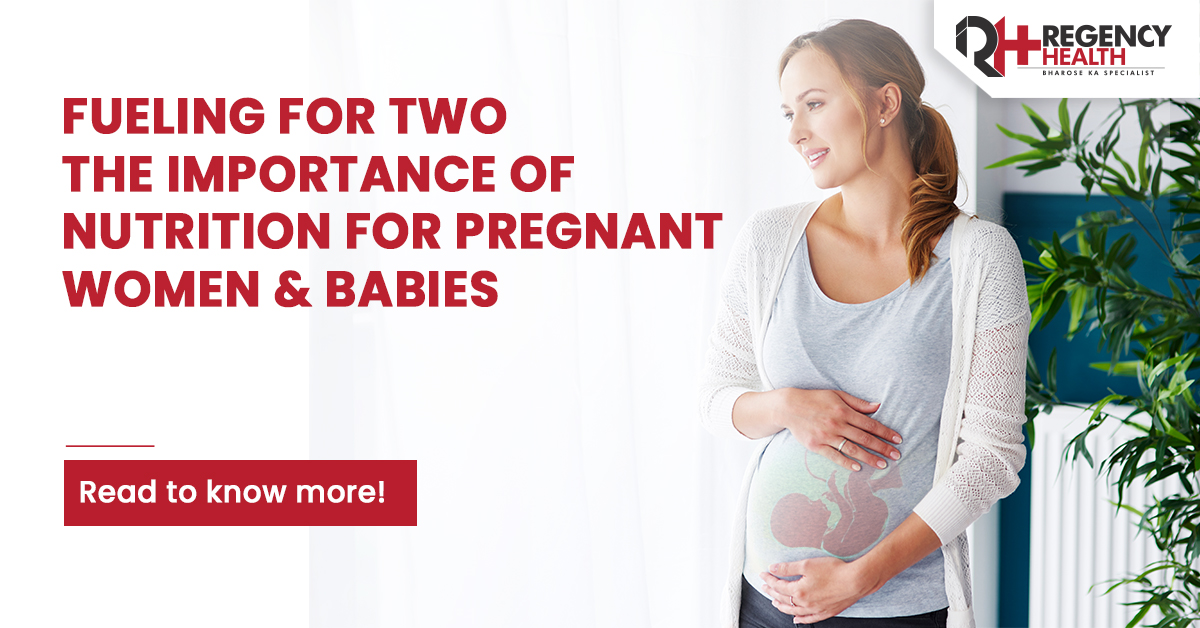
Role of Nutrition for pregnant women
The goal of nutrition is to provide your body with the nutrients it needs through a healthy, balanced diet. Our bodies have specific nutritional requirements which should be fulfilled in order to lead a healthy life. They contain water, vitamins, minerals, proteins, fats, and carbohydrates.
During pregnancy, the need for proper nutrition becomes even more crucial as maternal health and the child’s sustenance depend on it. Nutritional intake becomes more critical during this period. A balanced diet for a pregnant woman ensures the kid receives the necessary nutrition which will aid him during their growth stage as well. Additionally, a well-structured diet for pregnant women will ensure that both mother and child put on the appropriate amount of weight and are healthy during delivery.
Essential nutrients for the pregnancy period
Your body’s nutritional requirements during pregnancy change completely. Let us look at some of the absolute essentials of Pregnancy nutrition.
Iron- Your baby’s growth and brain development depend largely on iron. Because your body produces more blood during pregnancy, you need extra iron for both you and the developing baby. You need to consume 27 milligrams of iron per day.
Folic Acid – One of the most critical nutrients during pregnancy, It helps in the prevention of several birth abnormalities. You require 400 mcg (micrograms) every day before pregnancy. But when it comes to the pregnancy period and breastfeeding stage, you require 600 mcg daily from food or supplements. It is difficult to obtain this quantity from diet alone, so you must take a folic acid supplement.
Calcium – Adequate consumption of calcium during pregnancy can substantially cut down the risk of preeclampsia, a hazardous medical disorder that involves an abrupt rise in blood pressure. Calcium also strengthens your baby’s bones and teeth and promotes healthy growth.
During pregnancy, one requires 1000 mg of calcium in a day.
Remember that using a supplement in excess can be dangerous. For instance, extremely high vitamin A levels can result in birth abnormalities. Take vitamin and mineral supplements only as directed by your doctor. Visit your nearest healthcare center or multi super speciality hospital for further nutrition information.
When you are pregnant, you also require more protein. Beans, peas, eggs, lean meats, seafood, unsalted nuts, and seeds are all good sources of protein that you may consume.
Another special nutritional need during pregnancy is hydration. Your body needs more water during pregnancy to stay hydrated and nourish the developing foetus. Remember to stay hydrated and drink plenty of water as advised by your doctor.
Foods to avoid during pregnancy
- Alcohol. One of the most harmful elements from both maternal and fetal health points of view, there is absolutely no safe limit of alcohol that a pregnant woman can safely consume. Hence, it is best to avoid alcohol consumption during pregnancy.
- Fish and Seafood
- Foods with a higher likelihood of containing pathogens that could cause food borne disease
- Refrigerated meat
- Unpasteurized milk
- Pre-packed, store-made salads
- Processed foods
- Raw sprouts
- Papaya
- Pineapple

 Call-an-Ambulance
Call-an-Ambulance



